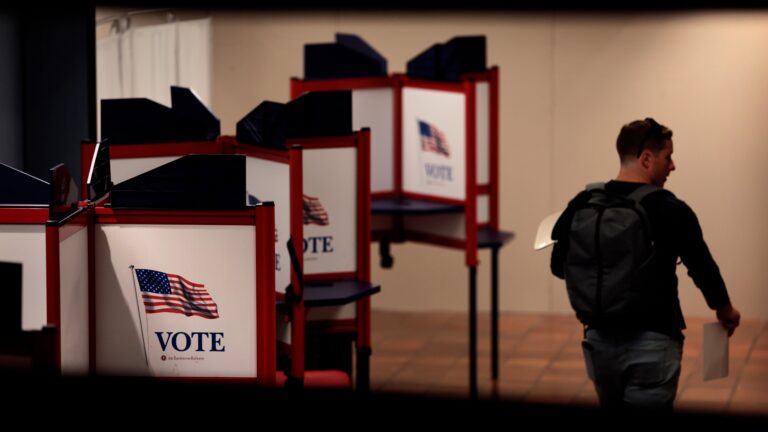Who Will Be on the 2025 City Council Election Ballot?

Published: 2025-09-10 04:25:56 | Category: Crime GNEWS Search
This article summarises the results of Boston's preliminary election held on Tuesday, which has set the stage for the general election on 4 November. Voters have narrowed down candidates for both the mayoral race and City Council seats, with key incumbents and challengers emerging in various districts. The preliminary election results show a competitive landscape, particularly for the at-large City Council seats.
Last updated: 27 October 2023 (BST)
Key Takeaways from the Preliminary Election
- The general election on 4 November will feature narrowed candidates for mayor and City Council seats.
- Ruthzee Louijeune leads the at-large City Council race with 17.65% of the vote.
- District 1 City Councilor Gabriela Coletta Zapata secured her position with 76.96% of the votes.
- District 7 had a highly contested race with candidates separated by a narrow margin.
- Several incumbents, including Ed Flynn and Brian Worrell, successfully advanced to the general election.
Preliminary Election Overview
The preliminary election in Boston served as a decisive moment for candidates aspiring to secure their place on the November ballot. With city council seats and the mayorship at stake, this election was pivotal in shaping the political landscape of Boston. While some districts saw incumbents running unopposed, others showcased fierce competition, particularly in the at-large council races.
At-Large City Council Candidates
A significant focus during the preliminary election was on the at-large City Council seats, where voters can select four candidates from a pool of eight. The results as of late Tuesday night indicated a tight race among the incumbents and challengers.
Ruthzee Louijeune
Ruthzee Louijeune emerged as the frontrunner with 17.65% of the vote. As an incumbent first elected in 2021, she has made a notable impact on the Council and serves as its President. Louijeune, the first Haitian-American member of the Council, previously worked for Senator Elizabeth Warren and has a background from Harvard University.
Julia M. Mejia
Close behind Louijeune was Julia M. Mejia, claiming 17.01% of the votes. Mejia has been a member of the City Council since her narrow election in 2019, winning by just a single vote. Her presence on the Council is marked by advocacy for equity and community engagement.
Erin J. Murphy
Erin J. Murphy, another incumbent, garnered 16.56% of the vote. Known for her moderate stance, Murphy has called for increased transparency within the Wu administration and has been an active participant in community issues since her election in 2021.
Henry A. Santana
Henry A. Santana, the incumbent elected in 2023, was in a competitive position with 12.59% of the votes. His background as a Dominican immigrant and director of Wu’s Office of Civic Organising adds to his narrative of community representation.
Frank K. Baker
Frank K. Baker, who has a long history on the Council, secured 11.29% of the votes. While he did not seek re-election for his district in 2023, Baker's attempt to regain a council seat has been closely watched.
Other Candidates
Additional candidates included Alexandra E. Valdez with 7.71%, Marvin Mathelier with 5.47%, and Will Onuoha with 4.75%. Their varying backgrounds and experiences contribute to the diverse pool of candidates in the upcoming general election.
District-Specific Highlights
While the at-large City Council races drew significant attention, the district-specific elections also played a critical role in shaping the future of the Boston City Council. Here are some key highlights from various districts:
District 1
In District 1, Gabriela Coletta Zapata is set to secure her position on the November ballot with a commanding 76.96% of the votes. An East Boston native, she joined the City Council in 2022 to replace Lydia Edwards, who now serves as a state senator. Her strong performance indicates considerable local support.
District 2
Incumbent Edward Flynn triumphed in District 2, receiving 4,608 votes compared to his competitor, Charles Jeffrey Delaney, who managed just 6.63% of the vote. Flynn, who has been on the Council since 2017, is recognised for his vocal advocacy on issues affecting the Mass. and Cass area.
District 4
In District 4, Brian Worrell dominated the race with 81.31% of the votes, confirming his position as a strong incumbent. He is known for his leadership role as chair of the Ways and Means Committee. Helen Cameron, with 11.98%, was significantly behind Worrell.
District 5
Enrique Pepén also demonstrated his incumbency strength in District 5, receiving 61.78% of the votes. Pepén's prior work with notable figures like former City Councilor Tito Jackson indicates a well-established political network. Winston Pierre followed with 24.60%.
District 7
The District 7 race was marked by a narrow margin between the candidates, showcasing a highly competitive environment. Mavrick Afonso led with 15.45%, closely followed by Samuel Hurtado at 14.93%, and Said Coach Ahmed with 14.84%. This tight contest suggests a divided electorate in the district.
What Comes Next?
With the preliminary election results in, candidates will now focus their efforts on the general election scheduled for 4 November. Voter turnout and engagement will be crucial in determining the final outcomes, particularly for the contested districts. As the election date approaches, candidates will likely ramp up their campaigns to sway undecided voters and solidify their support.
Implications of the Election
The results of the preliminary election hold significant implications for Boston's future. The City Council's composition can influence policy decisions on various issues, including housing, public safety, and community services. As incumbents and new challengers prepare for the general election, voters will have the opportunity to shape their city's governance.
FAQs
When is the general election for Boston's City Council seats?
The general election is scheduled for 4 November 2023, where voters will select candidates for the City Council and the mayoral position.
Who are the leading candidates for at-large City Council seats?
The leading candidates for at-large City Council seats include Ruthzee Louijeune, Julia M. Mejia, and Erin J. Murphy, all of whom are incumbents.
What percentage of votes did Gabriela Coletta Zapata receive?
Gabriela Coletta Zapata received an impressive 76.96% of the votes in the preliminary election for District 1 City Council.
How many candidates will be on the ballot for at-large City Council seats?
Eight candidates will progress to the general election for at-large City Council seats, from which voters can choose four.
What were the main issues highlighted in the preliminary election?
Main issues included community engagement, housing affordability, and transparency in local government, which were focal points for various candidates.
As Boston gears up for its general election, the focus will undoubtedly be on voter engagement and the candidates' ability to address pressing local issues. How will these elections shape the future of the city? #BostonElections #CityCouncil2023 #LocalPolitics



